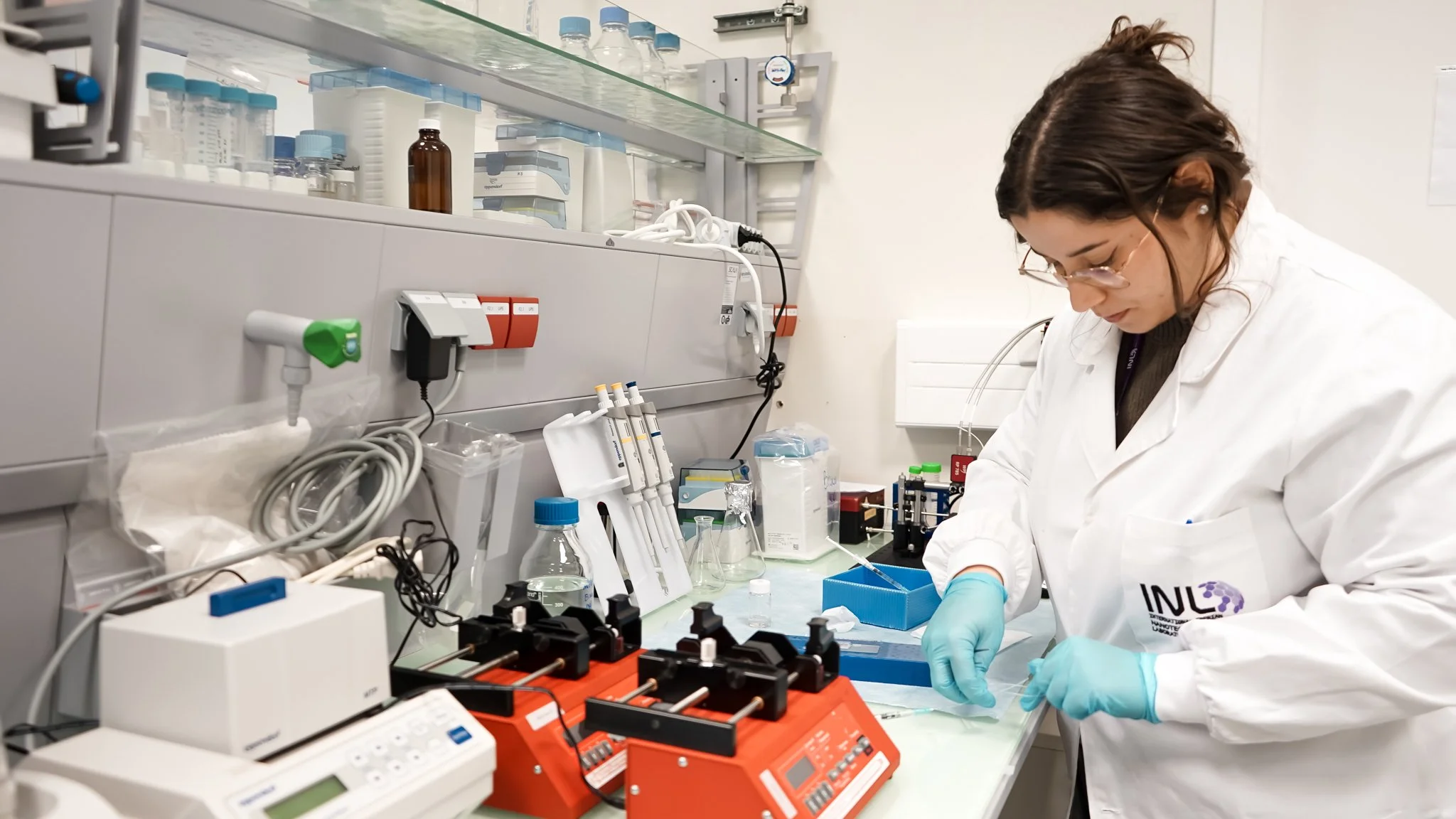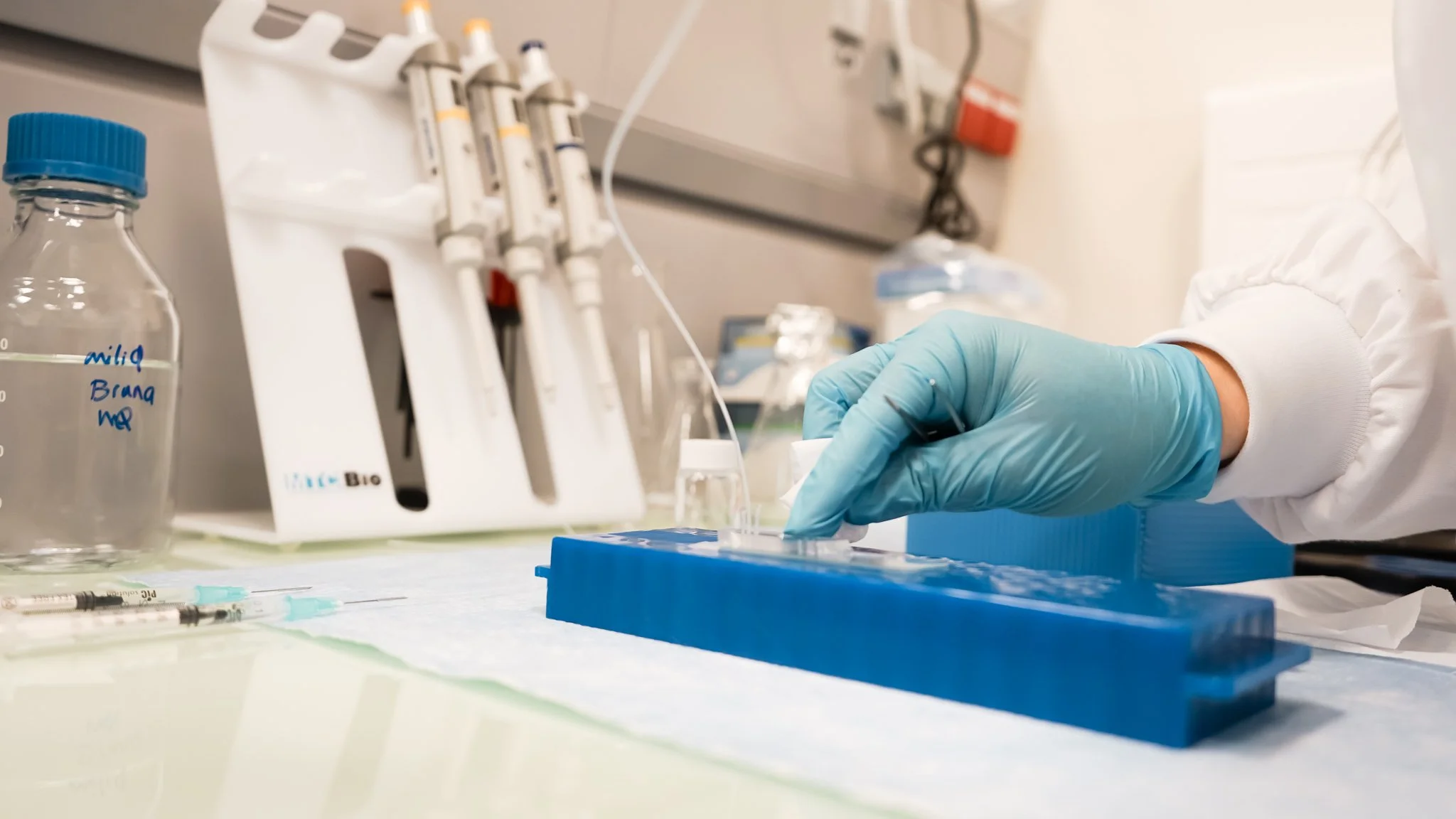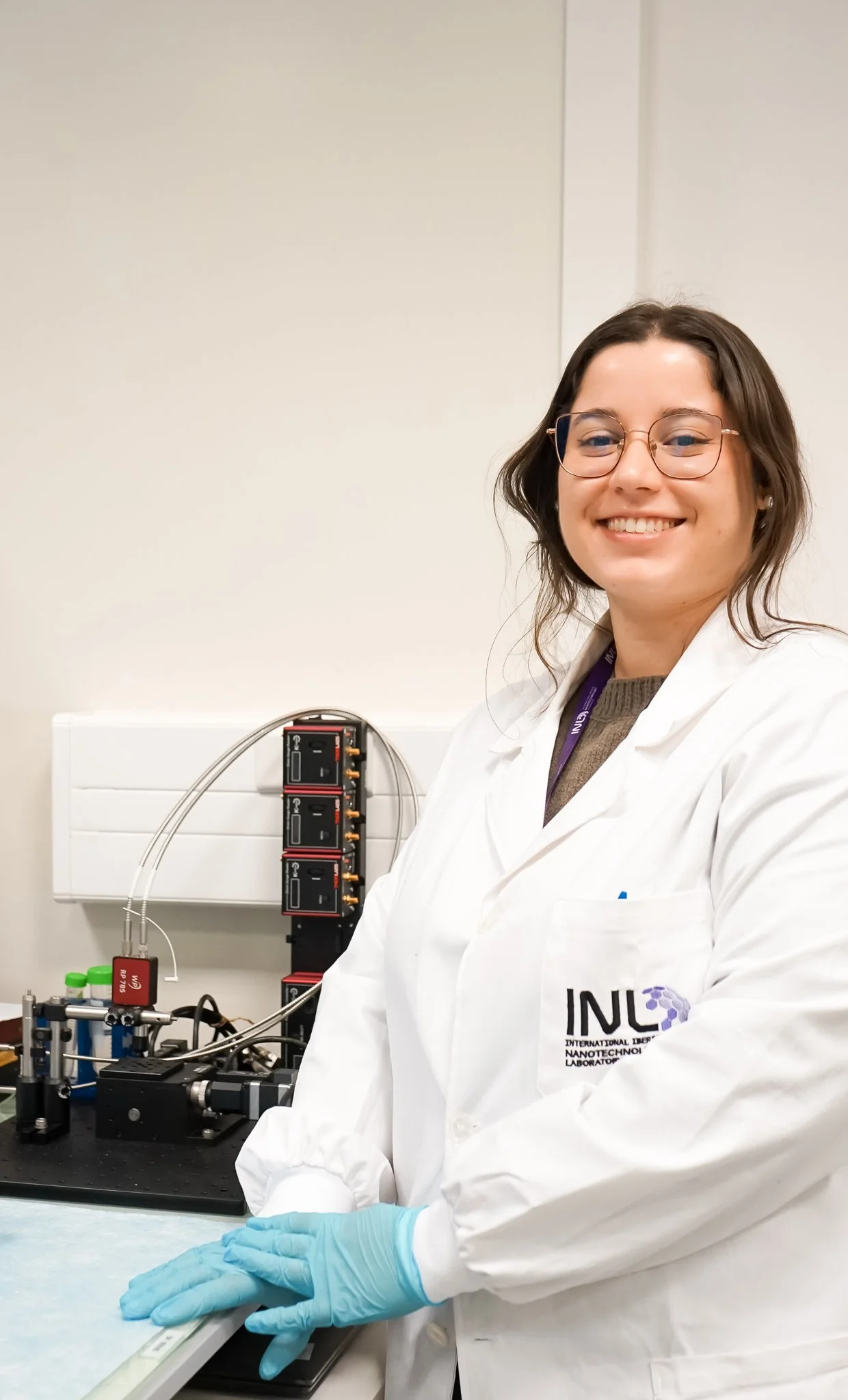Bruna Alves, working on the development of innovative SERS-based systems for dissolved CO2 detection in microalgae-based wastewater systems
We continue to shine a spotlight on women in STEM with this new interview series with Women working in/with Science at INL - International Iberian Nanotechnology Laboratory. It is important to celebrate the amazing contributions women make to science.
Today you can meet Bruna Alves, Junior Research Fellow in the Water Quality Research Group. Bruna received her Master’s degree in Chemical Engineering from the University of Coimbra, Portugal in 2022, specializing in Biosystems.
She developed her Master’s thesis under a collaboration between the University of Coimbra (Portugal) and the University of BOKU (Austria) focusing on lignin modification and the production and characterization of lignin-based bio aerogels. She has a strong interest in nanoworld and nanostructured materials.
Can you tell us about your path at INL and what you are working on at present?
I recently started as a Junior Research Fellow in INL - International Iberian Nanotechnology Laboratory in the Water Quality Research group. I am currently working on a new project FRONTSH1P that during the next four years will steer the Łódzkie region, Campania, Sterea Ellada, Norte, Friesland, and hopefully many others, towards a more circular and sustainable future.
My current research is focused on developing innovative Portable Surface-enhanced Raman scattering (SERS)-based systems for dissolved CO2 detection in microalgae-based wastewater systems. Microalgae-based wastewater treatment technology can not only purify wastewater and use the nutrients in wastewater to produce microalgae biomass, but it can also absorb CO2 in the atmosphere through photosynthesis.
How would you explain the importance of your work area to a non-scientific person?
I truly believe the work I am doing here is of utmost importance. Water is one of the most valuable resources we have, and unfortunately, we have explored it recklessly and taken it for granted. My work here is to develop sensors with the team to detect carbon dioxide in water that will help to monitor the performance of a microalgae based-wastewater treatment. If we want to change the current course of the planet we need to start today, and I believe this work will have a long-lasting impact on the future of the regions it will be used on (and maybe in others).
I am very thankful to be able to participate in the FRONTSH1P project and very excited to do my best within the Water Quality Research group.
What inspires you and excites you about science?
What inspires me about science is that it is never constant. You are always learning new things every day, and sometimes even what you thought was correct may not be as so tomorrow. You need to be extremely curious to search for new things and explore new fields to keep up with this fast-paced world and at the same time open-minded and ready to change and re-learn what you thought you once knew very well.
It is a challenging field, full of exciting activities and daring ideas. Fortunately, you are surrounded by brilliant minds, and by sharing your knowledge and having open conversations and discussions you can find unique solutions for the most challenging problems we currently face as a society, and have a long-lasting impact on our planet, and who knows… You might even change the course of the world someday!



